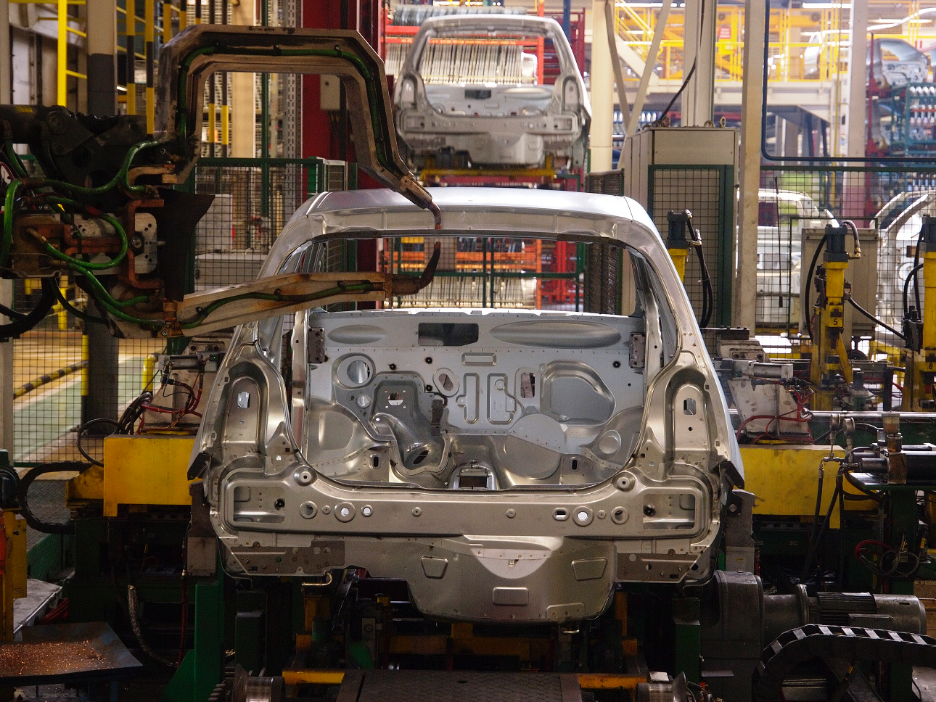The automotive industry is a cornerstone of modern economies, driving innovation in materials, design, and technology. Metals are at the heart of automotive production, enhancing performance, boosting fuel efficiency, or ensuring safety.
Below, this automotive metal supplier in Fort Worth, Texas is going to explore some of the most important metals used in automotive manufacturing, and we’ll also explain how they are applied across various vehicle components to improve function, safety, and sustainability.
Steel: The Backbone of Automotive Manufacturing
Steel is arguably the most critical metal in the automotive industry, accounting for most of a vehicle’s structure. Its versatility, strength, and cost-effectiveness make it indispensable for automotive design. Steel is primarily used for the chassis, body panels, and structural components, where strength and durability are paramount.
For instance, high-strength steel (HSS) is commonly used in crash-resistant zones such as the A-pillars, side-impact beams, and the safety cell, which surrounds the passenger compartment. Its ability to withstand high impact and protect occupants is one of the reasons why steel remains the go-to material for safety-critical parts. Additionally, advancements in lightweight steel alloys are allowing automakers to reduce vehicle weight without sacrificing strength, leading to improved fuel efficiency and lower emissions.
The widespread use of steel in automotive production also reflects the balance between performance and cost. Most reputable automotive metal suppliers in Fort Worth, Texas offer a range of steel products designed to meet the specific requirements of manufacturers. Whether it’s cold-rolled steel for automotive body panels or hot-rolled steel for structural beams, steel continues to be a central pillar of automotive manufacturing.
Aluminum: Leading the Charge in Lightweighting
Aluminum has become a game-changer in the automotive industry, especially with the growing demand for fuel efficiency and reduced carbon emissions. One of aluminum’s biggest advantages is its lightweight nature, which can help significantly lower a vehicle’s overall weight. This directly impacts fuel consumption, performance, and CO2 emissions. Manufacturers can design vehicles that offer enhanced fuel efficiency without compromising strength by using aluminum in body panels, engines, and wheels.
Aluminum alloys are favored for engine blocks, transmission components, and suspension parts, where the combination of strength and lightness is critical. As manufacturers work to meet stringent government regulations on emissions, aluminum’s role in reducing vehicle weight and improving fuel efficiency has become even more vital. The automotive industry’s transition to aluminum has also led to innovations like aluminum-intensive body structures in models like the Ford F-150, which boasts a high-strength, lightweight aluminum body that helps it achieve a better towing capacity and fuel economy than previous models.
Aluminum is a key material that offers not only weight reduction, but also superior corrosion resistance, which is essential for parts exposed to the elements. As the shift toward aluminum continues, Banner Industries remains a trusted supplier, providing a range of aluminum products that meet the evolving needs of the automotive sector.
Magnesium: The Future of Ultra-Lightweight Parts
Magnesium is becoming an increasingly important material as the automotive industry looks to make vehicles even lighter and more efficient. Magnesium is one of the lightest structural metals, weighing approximately one-quarter of steel and two-thirds of aluminum, which makes it ideal for reducing weight in critical parts of the vehicle. It is often used in die-castings for components such as engine blocks, gearboxes, and steering wheels.
Magnesium provides exciting possibilities for automotive manufacturers who are seeking to develop more sustainable, fuel-efficient vehicles. Banner Industries, with its extensive knowledge of the metal supply chain, is well-positioned to offer high-quality magnesium products tailored to the automotive industry’s needs.
Copper: Essential for Electrical Systems
With the rise of electric vehicles (EVs) and increasingly sophisticated electrical systems in traditional combustion engine vehicles, copper has become more essential than ever. Copper is an excellent conductor of electricity, which makes it the go-to metal for wiring and electrical components in vehicles. In addition to its role in wiring, copper is found in critical systems such as motors, battery connections, and charging infrastructure for electric vehicles.
Electric vehicles require significantly more copper than traditional vehicles, with estimates suggesting that an EV may use three to four times more copper than a conventional car. Copper is essential for the efficient operation of high-voltage systems that power EV motors, batteries, and inverters. As the global automotive industry embraces electrification, copper will become more important for vehicle production.
The demand for copper in the automotive sector is growing, especially with the rise of electric and hybrid vehicles. Most professional automotive metal suppliers in Fort Worth, Texas offer a wide range of copper products that are designed to meet the specialized requirements of the automotive market.
Looking for an Automotive Metal Supplier in Fort Worth, Texas?
If you work in the automotive industry and are searching for a reliable automotive metal supplier in Fort Worth, Texas, look no further than Banner Industries. Whether you require high-strength steel for structural components, lightweight aluminum for fuel-efficient designs, magnesium for ultra-lightweight parts, or copper for advanced electrical systems, we have the materials you need to drive your next project forward. Contact us today at (800) 950-3652 to request a quote.







